This content was originally published by the Longmont Observer and is licensed under a Creative Commons license.
“Shall we land?” queried the pilot. The five passengers in his helicopter were so in awe of what we were seeing, no one answered at first. I’m sure we all had the same silent question: “Land where?” We had just flown over huge ice fields, including Mendenhall Glacier, and we were now overlooking Herbert Glacier near Juneau, Alaska.
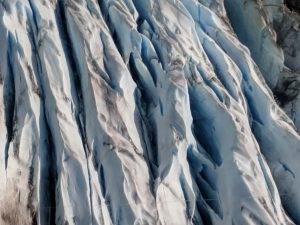
The surface looked like the landscape of a mysterious, rugged ice planet. We couldn’t imagine a helicopter landing there. Yet, our helicopter began its descent. Suddenly, I blurted these words into the microphone of my headset: “Don’t miss!” Wordless agreement from the other passengers; then the pilot’s chuckling response: “That’s really not an option, Ma’am.”
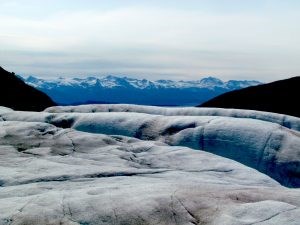
We did land, between two huge crevasses. We were so close to the one on my side of the helicopter that I was afraid to step out of the craft. Having never tested the ice boots I was wearing on actual, solid ice, I was terrified I would step out and slip right into it! I was sure the 180 foot fall into icy cold glacial water below, although memorable, would not be a suitable ending to our trip. Not wanting to admit my fear, I remained still as others began exiting the opposite side of the chopper. I don’t know whether the pilot sensed my fear or just didn’t trust my ability to be steady on the ice, but he suggested I slide over on the seat and exit the opposite side with everyone else. I breathed a sigh of relief and scrambled out, a little more confident that I could remain on solid ground.
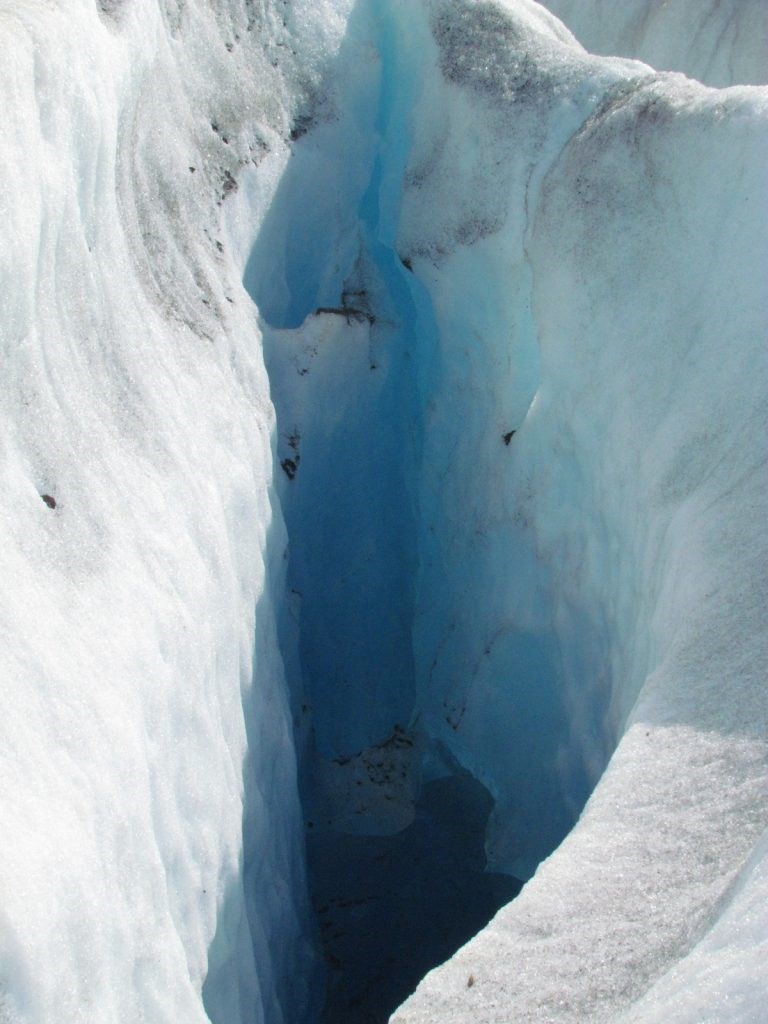
Once we had disembarked, our little group of five people gathered close and waited for instruction, even though we had a vast land of ice to explore. We were like a group of preschoolers on a fieldtrip with their teacher. We were excited about what we were seeing, wanting to explore and touch everything, but terrified that we would somehow get separated from our teacher. We got permission to explore and finally began to relax and walk around a bit.

We were unsure how far to venture from our guide, but we saw a large hill of ice. We were curious, wanting to climb to the top and see the view from there. We also wanted, of course, to see what was on the opposite side of the hill. “Can we go up there?” we asked timidly. “Of course!” the pilot replied confidently.
We climbed up, and our breath caught as we viewed a beautiful waterfall beyond the crevasse on the other side. We took in the breathtaking 360 degree view and then thought of another question to ask our guide. We started back down the hill towards the helicopter, but our gait was a little slower, more unsure.
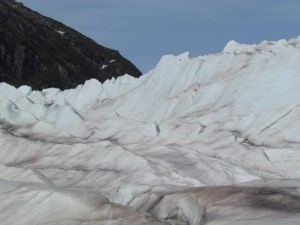
It was one thing to climb up a hill of ice, where tripping would cause an uphill fall of a foot or two into the side of the hill. It was quite another thing to walk down a hill of ice, where slipping would cause a downhill slide into a crevasse we could never climb out of! We cautiously made our way down and were reunited with our group.
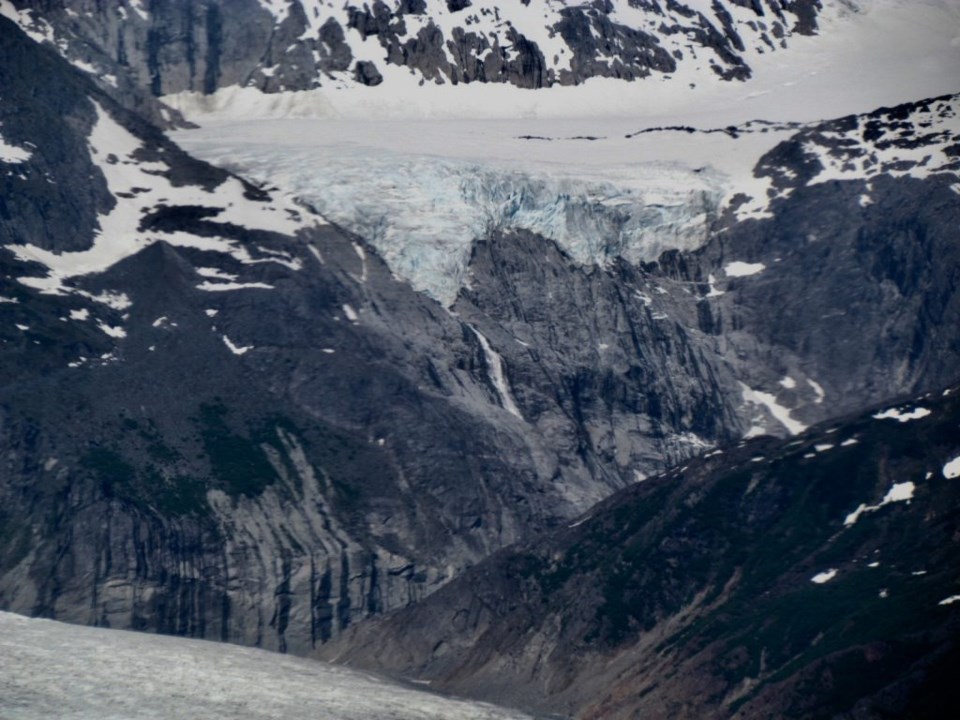
We bent to touch the beautiful blue water we were seeing, and the pilot said, “Go ahead and drink it.” I immediately thought of those cleaners you can put in the tank of your toilet. They cause the toilet water to turn blue, but it keeps it clean and nice smelling. I wouldn’t let my dog drink out of the toilet, and something inside cautioned me against this water too. Our pilot explained that the water is not really blue but clear as can be.
The ice in a glacier is so dense that the only kind of light it can reflect is blue. Those blue rays of light travel through the water, making it appear blue. So it wasn’t toilet water at all! But was it clean?
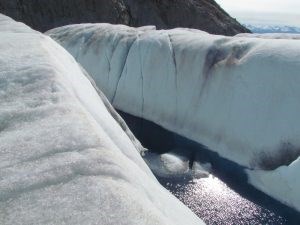
Glaciers don’t provide the nutrients needed for most animals to survive on them, and there is no human access to this glacier outside of helicopter landings. As a result, the water on this glacier is relatively untouched and drinkable, even without a water filter.
Since we were all afraid to get close to a deep water-filled crevasse, we chose shallow ones where we could easily reach the clear water and see the bottom through it. We could see sediment of some kind, but our guide assured us it was just pieces of rock that had gathered as the glacier expanded, carving valleys in its path. The water was cold and refreshing.
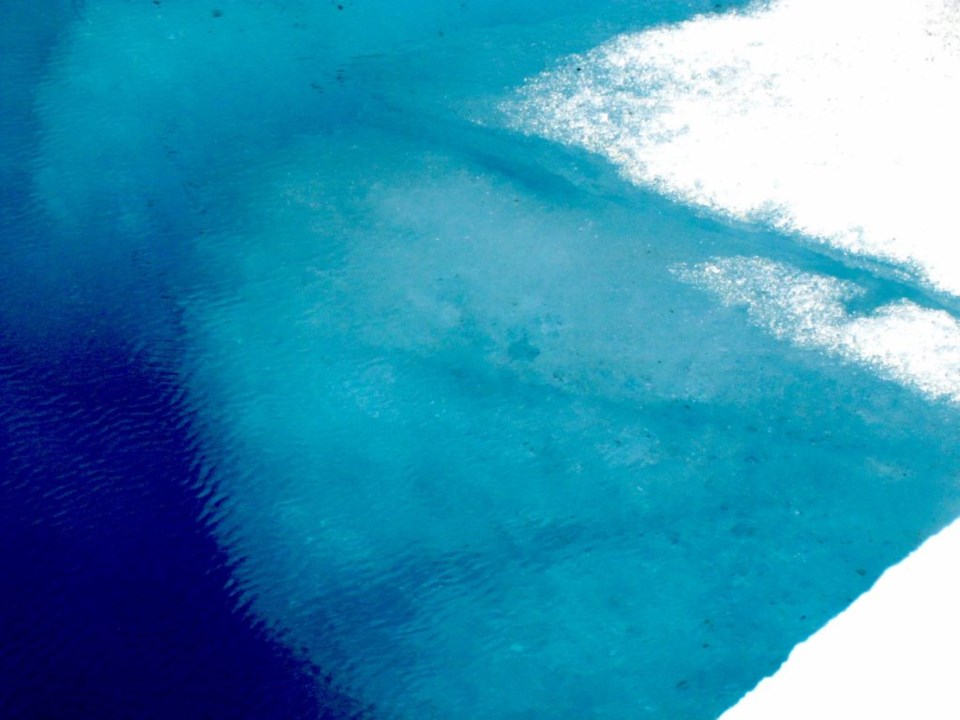
Long before we were ready, it was time to climb back in the helicopter and head back to the Juneau Airport. The sights on the way back were beautiful as well, such as the Taku Inlet and the Tongass National Forest.
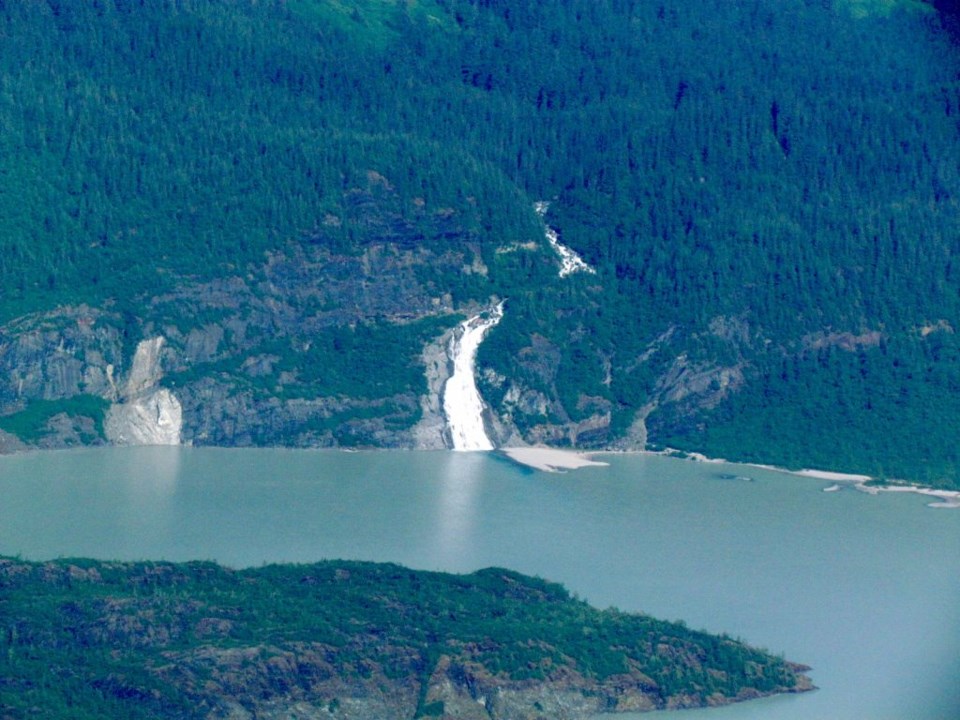
Our trip was over all too soon, and we headed back to the air field, in awe of creation and wondering what else this amazing earth had in store for us that we hadn’t seen yet. There simply isn’t enough time to see it all, but we’re certainly going to try!


